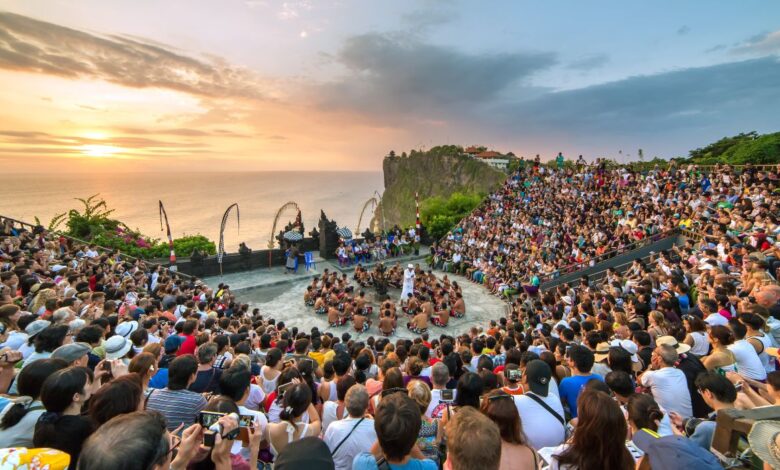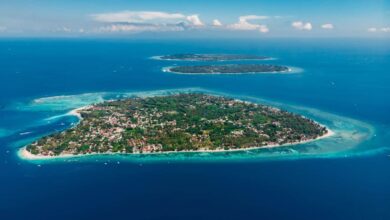Bali’s government will not tolerate Barcelona-style anti-tourism on the island

The latest anti-tourism protest in Barcelona has provoked unfavorable reactions as a group of demonstrators fired water guns at visitors while asking them to ‘go home’.
Such behavior was immediately condemned by both local authorities and tourism industry leaders, but the dust raised in the international media has not yet settled.
Earlier this year, Bali was declared a new ‘overtourism hotspot’ in 2023 with 14.6 million international and domestic tourists, Seasia.news reported.
Indonesia’s Minister of Tourism and Creative Economy, Sandiaga Uno, expressed concerns about the designation at the time.
“Overtourism is a concern because tourist numbers are actually still around 30 percent lower compared to 2019.” the minister said during a press conference on January 3.
The water gun situation in Barcelona has raised new concerns.
During a visit to Bali’s Jembrana Regency last week, Minister Uno said: “Things like Barcelona [protests] should not happen in Bali. Because when people feel uncomfortable with the presence of tourists, bad excesses arise. In fact, tourism is one of Bali’s economic engines.”
But can Bali be compared to Barcelona? – Let’s look at the numbers.
Recognizing that Bali has a territory of 5,780 km², while Barcelona has only 101.4 km², the Island of the Gods received 5.2 million international visitors and 9.4 million national tourists in 2023, representing an increase of 144.61% compared to the previous year. Meanwhile, Barcelona alone receives an average of 32 million visitors annually in a smaller area.
The real problem in Bali is that most tourists tend to visit the same areas and spend the night there.
That is why Minister Uno has repeatedly expressed the need for Indonesia to promote more decentralized tourism to prevent travelers from concentrating on the same hotspots, creating problems related to overtourism.
According to the minister, one of the solutions is to accelerate the construction of the Probowangi toll road in East Java and the Mengwi-Gillimanuk toll road in West Bali, so that tourists can be redistributed across the province.
In this way, “Tourists are not only concentrated in South Bali, but also in West Bali, which can be associated with Banyuwnagi,” he said.
Bali already faces problems with tourists breaking the laws and disrespecting the local culture.
Before the summer, the government had to reissue the proposal a list of do’s and don’ts when visiting Bali.
“Tourists who come have to adjust their goals when they come to Indonesia. If you deviate from your goals, for example by working here, action must be taken.”
Bali’s tourism industry is booming and more tourists are coming every year. So it is of utmost importance that the government accelerates the development of the infrastructure needed to house so many people while protecting the local population.
In December 2023, the island had a hotel occupancy rate of more than 90 percent. If the authorities are not working on strategies to stop potential problems, we should not blame the Balinese when they decide to ready their water guns.




